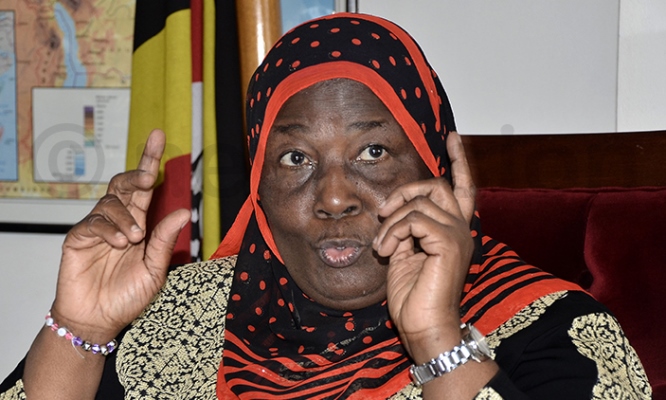News
Youth Loans Scheme records gains, but skills gap blights its future

While releasing findings of an evaluation study that was carried out by independent consultants, the Minister of Gender and Social Development Hajat Janat Mukwaya noted that the Youth Livelihood Programme was a success story.
According to the report, the programme has had a 4% increase to jobs in the country. At the same time, the report shows that as a result of job creation, a number of youth moved from unskilled to skilled labour force. It however did not indicate the exact number of youth under the YLP that made the transition.
In addition, the YLP is credited for boosting taxes by increasing the number of youth-owned businesses that are registered. The report shows that such businesses increased from 24% to 29%.
According to the survey that was done between 2017 and 2019, loan recovery over that period improved to 70% nationally, compared to less than 50 percent over the previous years.
The Minister of Gender, Labour and Social development Hajat Janat Mukwaya attributed the failure by some youth to return the money to drought conditions that hit the agricultural sector yet majority had invested the money there.
But Samuel Odongo, the Publicity Secretary of the National Youth Council, appeared to contradict her when he stated that laziness and poor mindsets that consider white color jobs are the only source of employment as the problem.
“Most youth want white color jobs, they don’t want jobs where they shall earn little that is why you see those who get the money some of them just waste it and run away,” he said.
He added that, most people have neglected vocational school where they can acquire skills and instead they opt to go for University “Everybody is rushing for University where they study arts courses which have few job opportunities undermining vocational studies yet in vocational studies where one graduates as always a job creator not a job seeker”
Odongo says that unless youth change their mindset the government programs shall continue to benefit the little who understands their values.
“It is true government has given a lot of money to the youth, but simply because most of them have negative attitude towards work, some of them fail these projects,”
In the report, Western Uganda districts of Sheema, Bushenyi as well as some from Karamoja recorded great successes.
Sheema topped with 87 percent, followed by Moroto with 86.40 percent, Bushenyi 85 percent, Kasese 83 percent and Kotido 83 percent. The deeply rooted culture of working with Savings and Credit Cooperatives in the region could be one of the reasons behind the successes.
However the newly created districts such as Kaberabyong, Kasanda, Butebo, Nabilatuku and Omoro performed poorly below 10%.
Fatinah Nakazibwe, the Publicity Secretary of Uganda Poor Youth Association says that the programme needs to be scalled up to reach much more people that it is currently.
“The program is meant to benefit all youth but unfortunately it is only a few who have benefited there for government has to do more in allocation of funds if all youth especially in villages are to be employed” she said
Figures from the Ministry of Gender, Labour and Social development shows that 30.418bn (70 percent) out the 50.438bn that is supposed to be returned in the financial year 2018/19, has been successfully recovered.
Comments






















